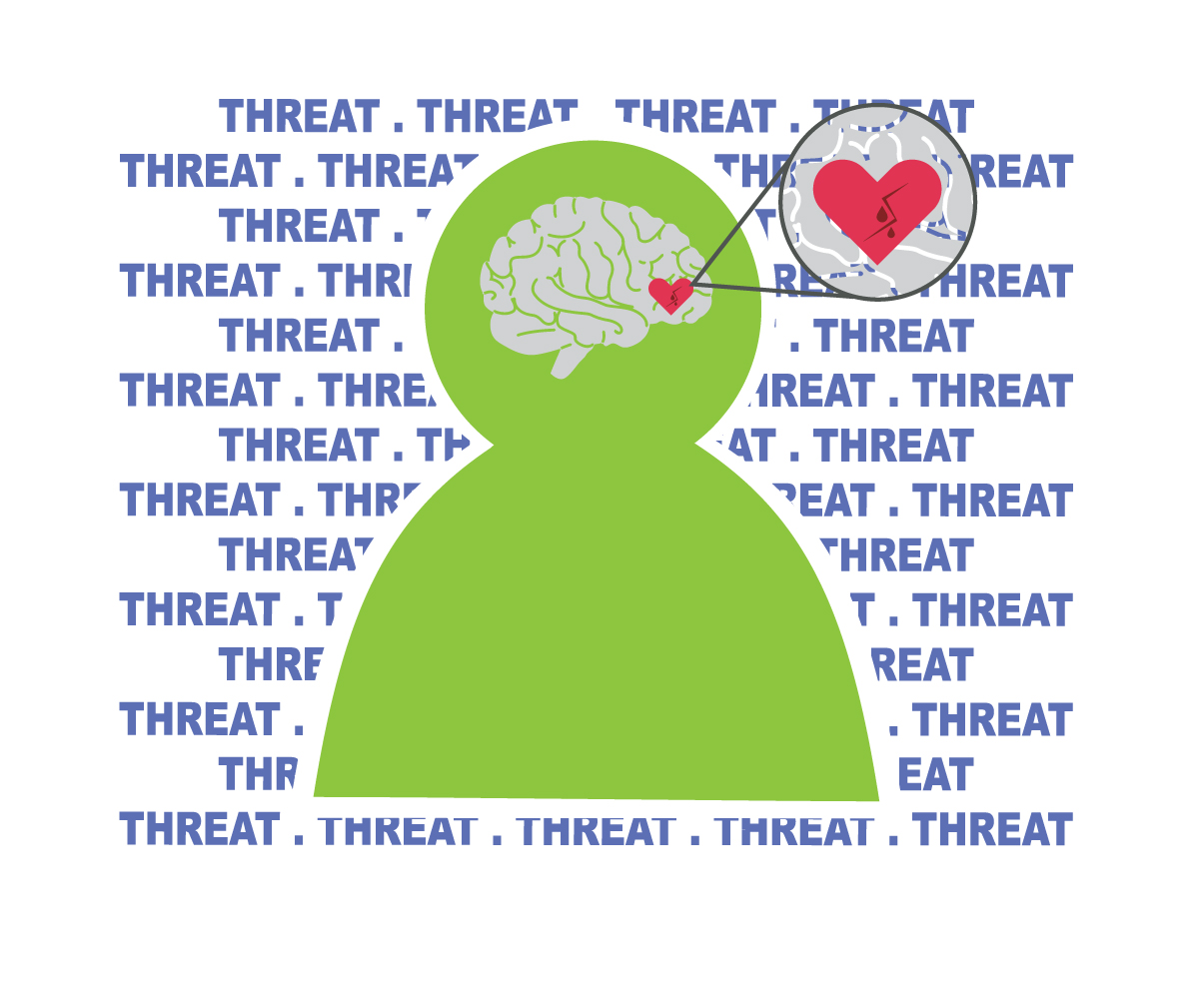Sensation:
Unlike sadness, worry has an outward focus and an orientation towards the future. Some may say that worry is fear not fully acknowledged or experienced. It manifests itself in the belief that there is an immediate or long-term threat and that loss and suffering is inevitable. Those affected by worry are absorbed into constantly thinking that they must do or should have done something else. This impending sense of uneasiness is substantiated by imagining a future (for ourselves, others and the world) of loss, pain and discomfort.

Signs:
Worry manifests itself in the following ways:
- A feeling of restlessness
- Breathlessness
- Concentration problems
- Sleeping difficulties
- Uneasy stomach
- Disturbed appetite
Self-care practices:
Often the thoughts that fuel our worry are linked with previous memories, imagined failures or unpleasant experiences. In our attempts to avoid an undesirable outcome or experience, we often focus on the perceived threat itself, such as failing an exam or being declined a job offer. Instead of using our attention and memory to focus on studying or interview preparation, we feel depleted by the energy it takes to worry about the possible unpleasant scenarios which may occur. The following strategies can be used to help if you are overcome by worry:
- Since the fears may be real and certain outcomes may lead to discomfort, pain or loss, it is natural to worry. In so far as the stress of the worry motivates you to organize your energy and resources to tackle that which you can, worry is useful. Beyond that, if worry depletes your energy, demotivates, distracts and demoralizes you, you may need to ask yourself: Is it real? Is is happening right now? It is important to recognize the fear and feel it fully in your body, without reacting to it.
- Another habit that fuels worry is the inclination to jump ahead and catastrophize a mistake, failure or disappointment. For instance, if I don’t get an A on this exam, I will not get into the university I want, and therefore I will not find the job that I seek, and then no one will ever marry me and I will be lonely my whole life. If you feel such things, it is important to focus on the things you can directly influence through your own actions, and not on the things you cannot influence. Try to replace the question ‘Can I do it?’ with the question ‘How can I do it?’. For example, if you are a student, it is not worth pondering over the fact that you have a bad maths teacher, as changing your maths teacher may not be something you can directly influence. Instead, what you can do is study hard with your fellow students. Focus on the things you can influence in the present and not be absorbed by worries about the future.
- Those experiencing worry often have a high heart rate. It helps to do exercises which synchronise breath with slow, subtle movements such as yoga, or to work with your hands.
- A breathing exercise can help bring your breath to a natural rhythm. Extend the exhale at least three counts more than the inhale; the longer exhale allows the body to find its resting heartrate.
- Surround yourself with people and forms of entertainment which make you laugh. Laughing helps us reach the body parts where we hold our worries – laughing may help shake them off.
